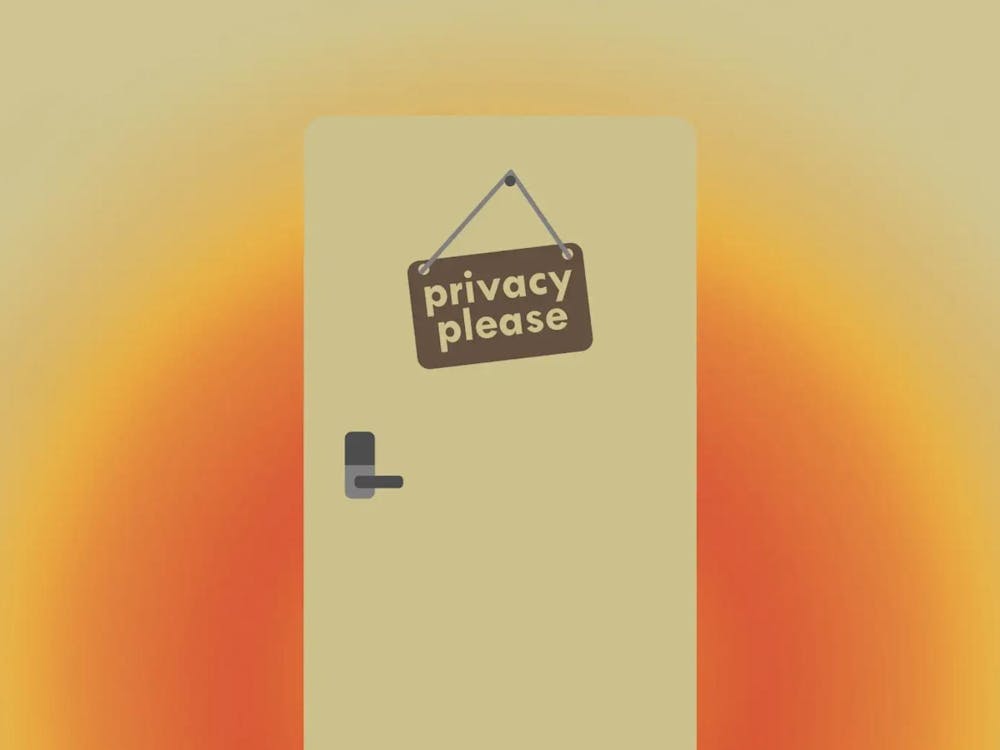The signs are everywhere: "Friends Don't Let Friends Go to Tech" T-shirts, pins with a big red "X"s printed over the word "Tech," shot glasses with a mark at the top labeled "U.Va." and a mark in the middle labeled "Tech."
It's that time of the year again, when all Wahoos take a break from school work to see the pinnacle of intrastate rivalry - the Hokie-'Hoo football game.
Indeed, a quick walk through Mincer's (or even a die-hard University fan's room) will reveal a plethora of paraphernalia denouncing all things Tech.
The causes for the rivalry are varied, but what immediately comes to mind is sports. Tech and the University dominate the Virginia sports scene, which makes for intense competition on the playing field, especially in football. So why do students who aren't even on the football team still adamantly favor Good Ol' U.Va.?
According to Anthropology Prof. George Mentor, who teaches the class ANTH 352, "Tournaments and Athletes," sports of all sorts give fans and players an outlet for "loyalty to something bigger than yourself."
In addition, he noted that "current research shows most [fans] today are athletes who are not participating." Thus, everyone sitting in the stands, from the rec-league ultimate frisbee player to the varsity lacrosse team member to the Olympic swimmer, is able to communally feel this increased sense of belonging.
Mentor added that sports are essentially about "violence under control ... sports are about domination, not destruction." This concept enables rivalries to last year after year, adding to their intensity with each new season.
Although athletics certainly fuel the aura of opposition, most consent that it would still exist, although to a lesser degree, even if nobody played sports at all.
Psychology Prof. Timothy Wilson, director of graduate studies in the Psychology department, said people feel the basic human need to divide themselves into "we" and "them," hence we divide ourselves into U.Va. and Tech.
"We strive to make our own group look better at the expense of the other group," Wilson said, in international, national and even collegiate levels. This behavior is not necessarily harmful, he said, but there is a line we can cross when we cease to view others as individuals and instead view them only in the context of their group.
Ultimately, he said the only way to break down this division is contact, "not ritualized, like seeing [Tech] students across the stands at a football game or waiting in line at the concession stand," but rather interaction on a personal and individual level.
And members of the University community, male or female, athlete or not, have their own personal take on the rivalry. Unsurprisingly, most University students take a strong stance in favor of their school. On one end of the spectrum are die-hard University fans such as first-year College student Will Boland.
"I can't think of anything intelligent," to say Boland said. "When it comes to Tech I just get pissed off!"
Many University students, however, fall into a much more neutral category.
"I don't feel personal rivalry [towards Tech]; it's just a school pride thing," third-year College student Arwen Joyce said.
To complicate matters further, many University students have high school friends or significant others who now attend Tech. For this reason, many try to temper the extent of their Tech-bashing.
"One of the privileges that every U.Va. student should have is to be able to gloat to your former high school friends about U.Va.'s superiority over Tech," first-year College student Rod Nazemi said.
A few University students are even willing to admit that Tech does have its advantages. Many say that Tech's Computer Science and Engineering programs may have an edge over the University's. According to the 1999 U.S. News and World Report list of "Best undergraduate engineering schools with Ph.D. programs," Virginia Tech is tied for the No. 18 spot, while the University lags behind in a tie for No. 32.
However, when it comes to the "Top 50 National Universities" list, the University scores an impressive No. 22, while Tech is relegated to the second-tier list. Many University students adopt this more general view when making comparisons to Tech.
An entirely different aspect to explore is the Tech perspective on the issue. "U.Va. looks upon Tech as a glorified trade school, and Tech looks upon U.Va. as a glorified high school," said Chris McCutcheon, a prospective Tech student and Blue Ridge Community College freshman.
Then, of course, there are the jokes, such as "How many U.Va. students does it take to change a light bulb?" (In case you're curious, it's two: one to call daddy and one to open the Perrier).
Tech junior Christina, who withheld her last name for fear of recognition by her University friends, said she grew up hearing her father say "I'm neutral about U.Va. I don't care who beats them."
"I guess some people [at Tech] think of U.Va. as snobby people who think they're too good for anyone else," Christina said. "I don't think one is superior to the other. I think everybody's out to prove they're great."
Even if Virginia students have no deep-rooted personal feelings against Tech, they are likely to cultivate the competition because, as first-year Architecture student Josh McKenrick said, "it's just part of the tradition to go along with."
Indeed, the 'Hoos and Hokies rivalry is as much a University tradition as streaking the Lawn or dressing up for football games.
Two large state schools co-existing within 150 miles of each other, each well stocked with school spirit and the desire to demonstrate it, create a virtual cauldron in which to brew a rivalry. And despite the constant striving of the Cavaliers to exert their superiority, maybe Tech really does come out on top. After all, where else do you get a degree for changing a light bulb?




